
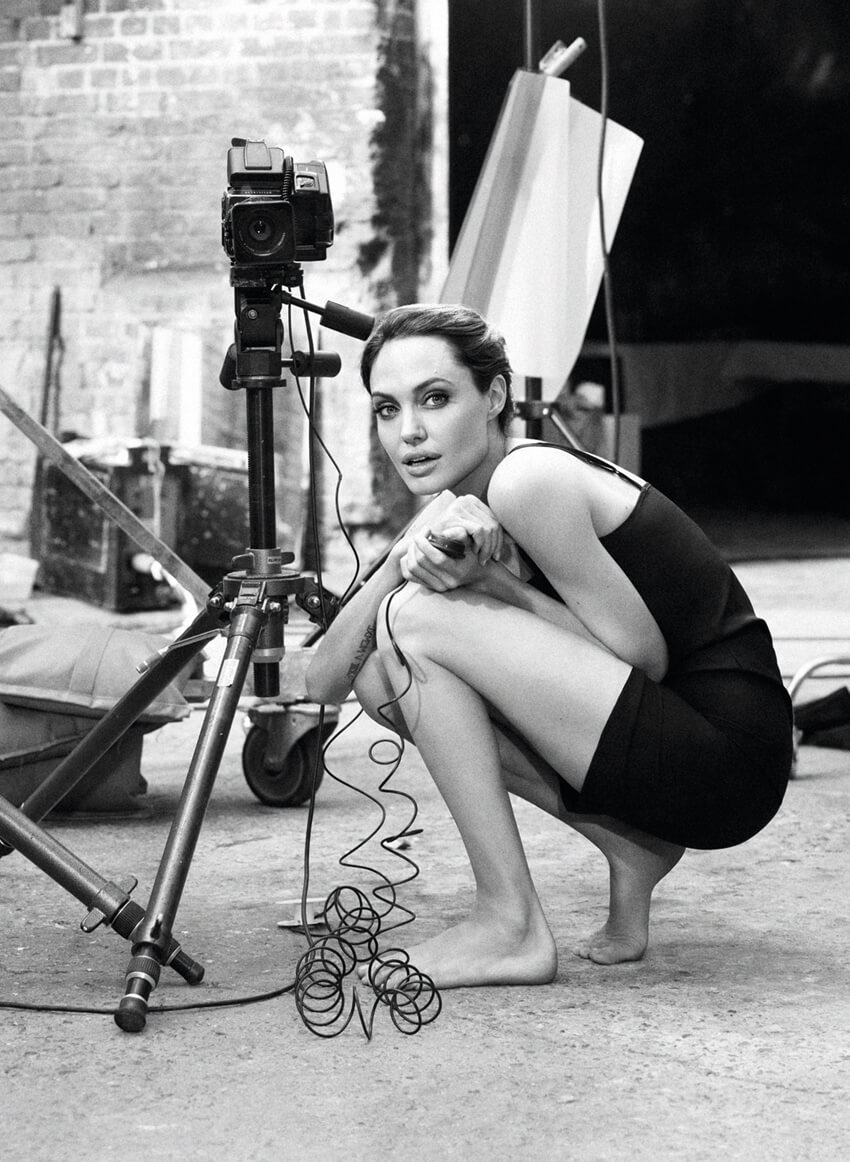
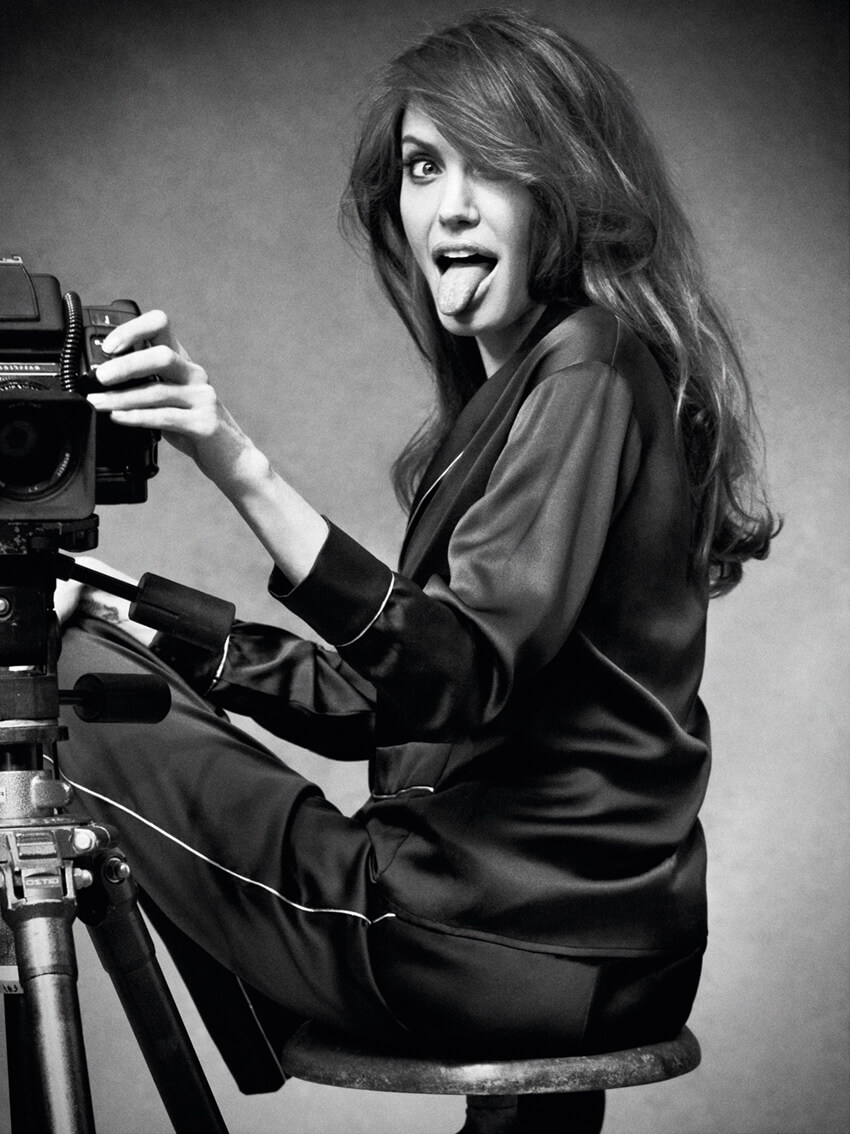
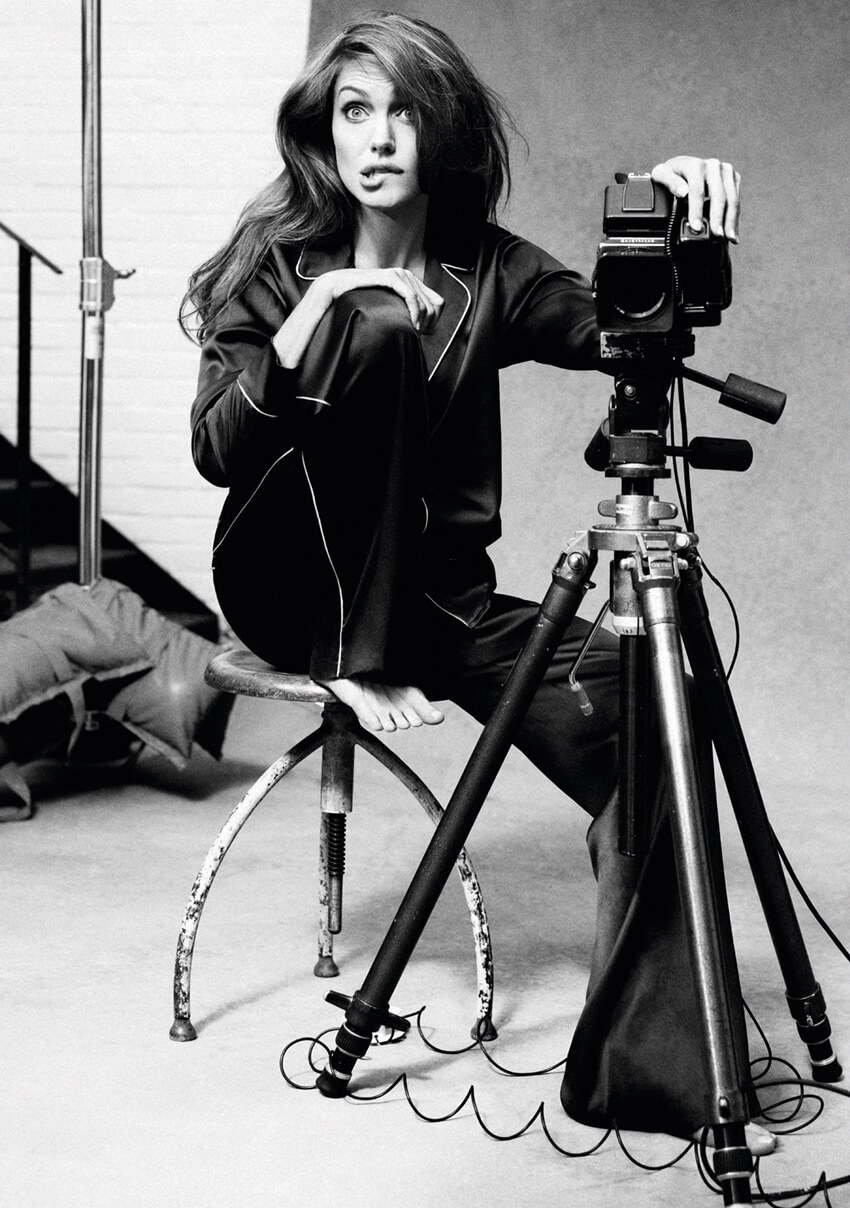
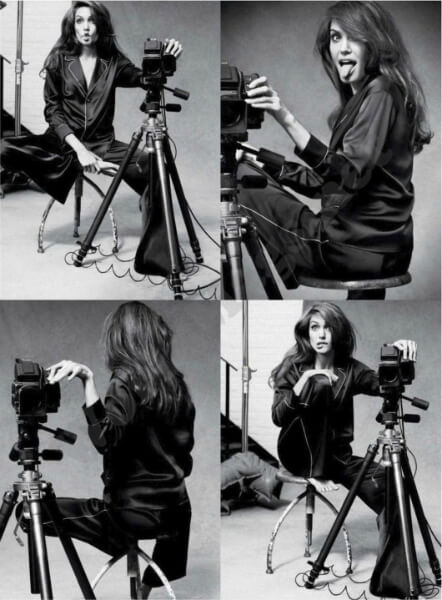
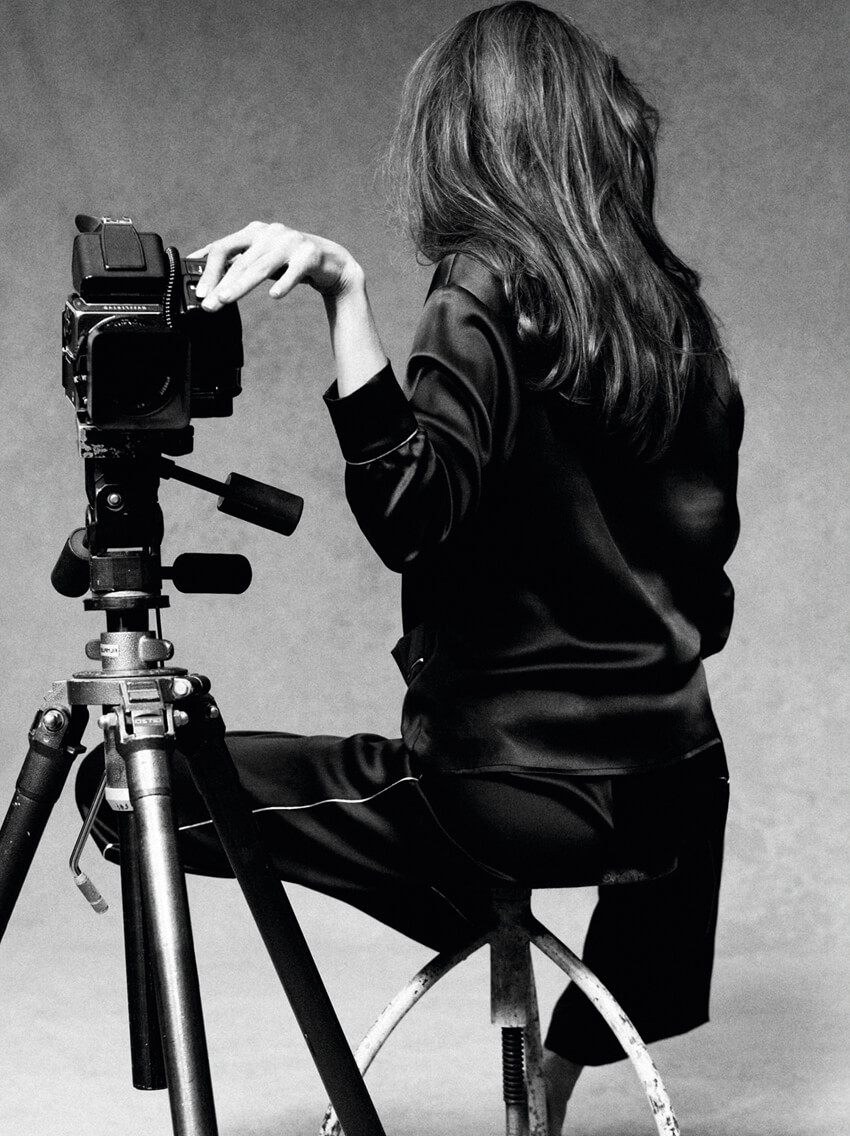
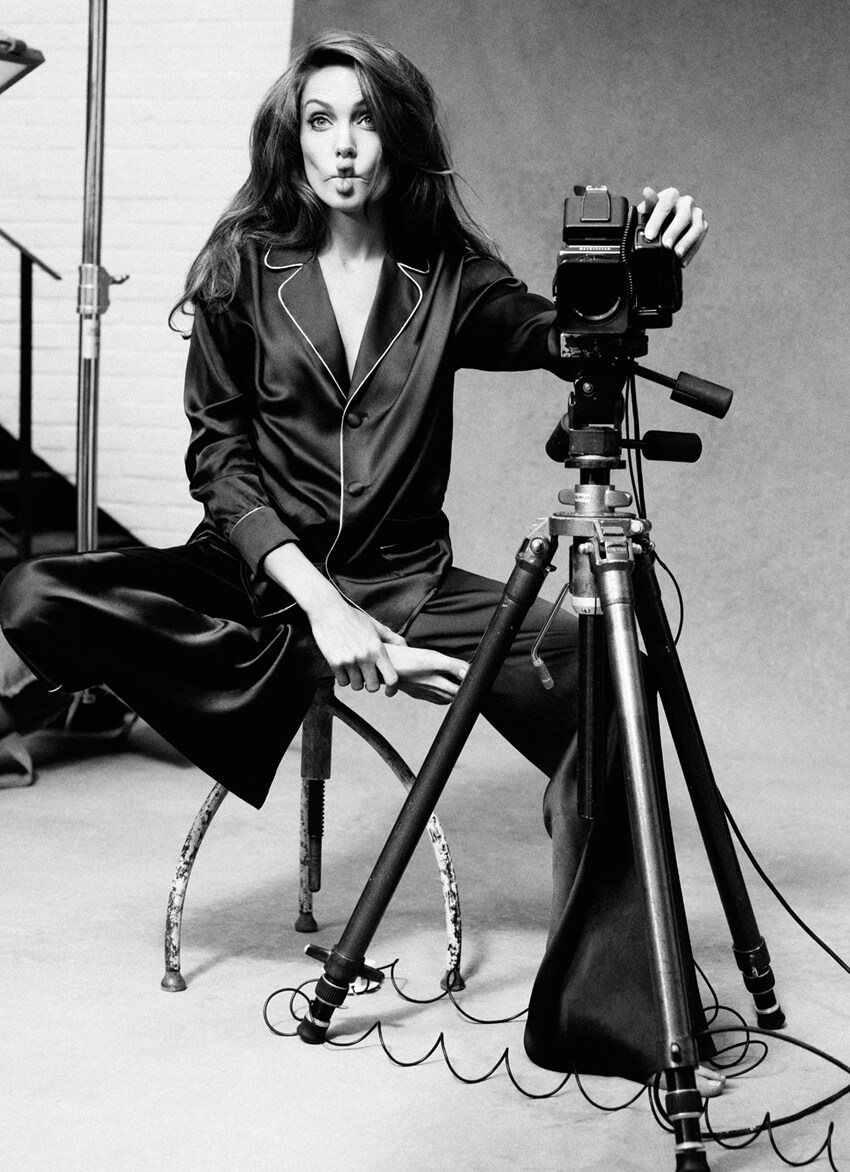
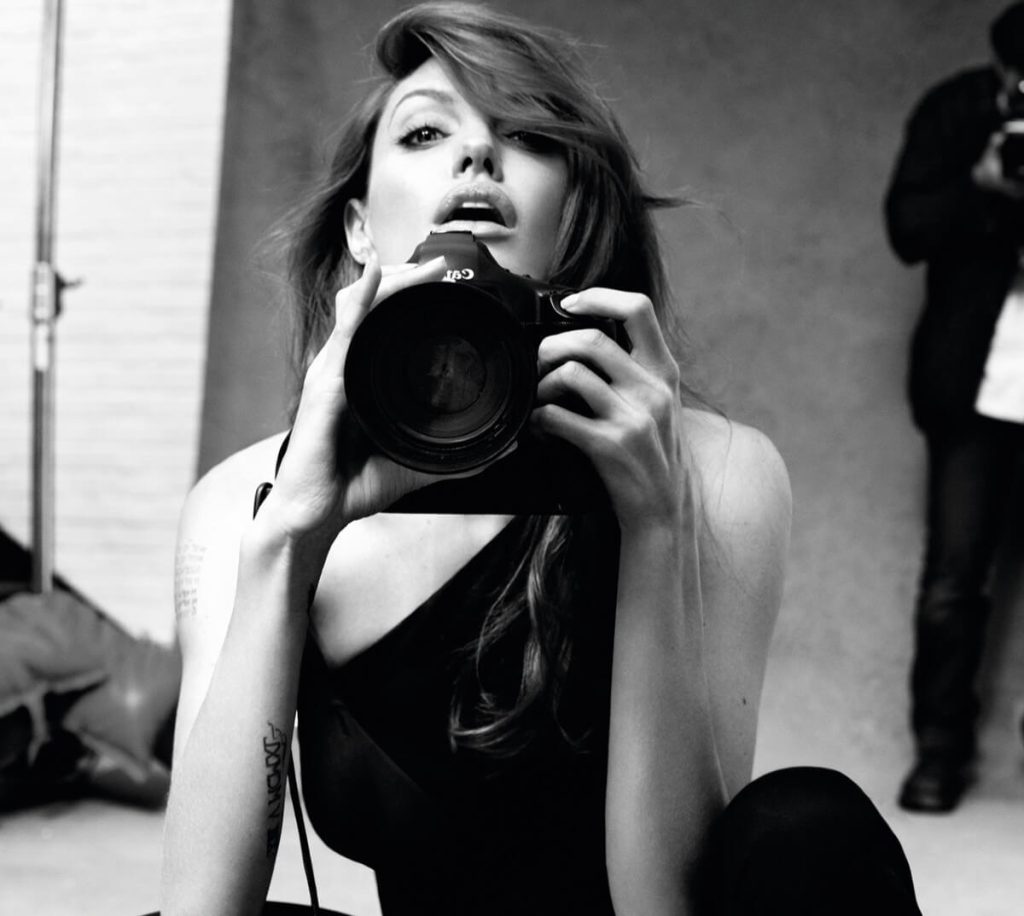
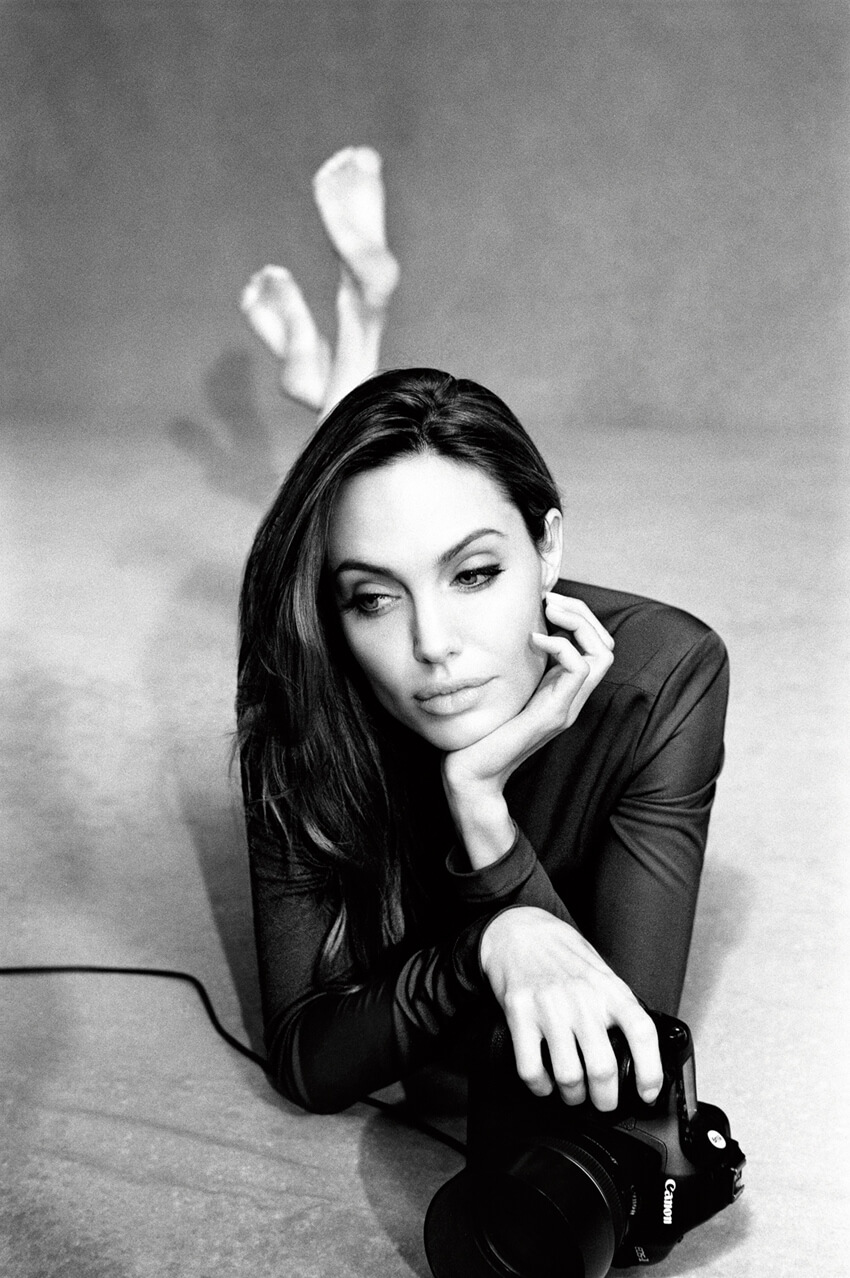
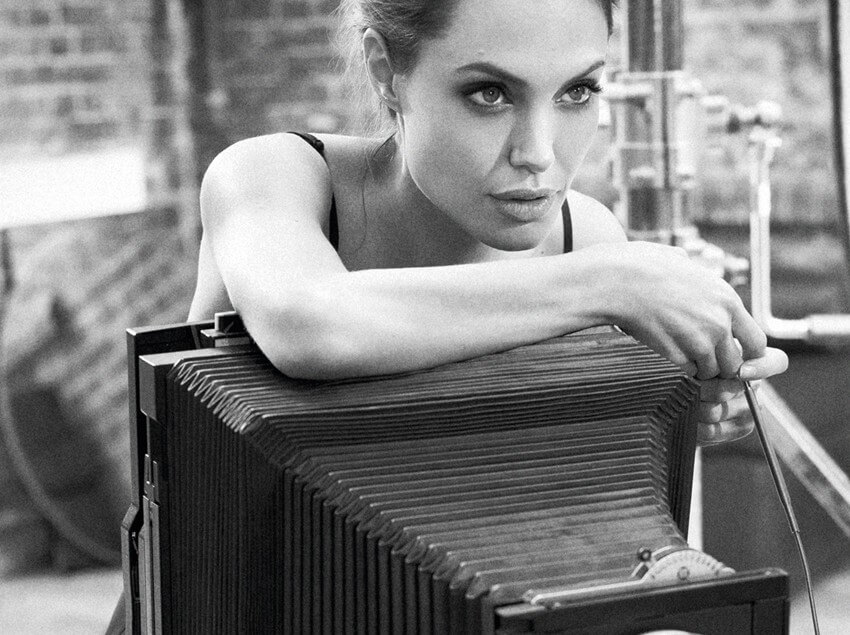
It is a drizzly autumn midday, and all’s serene on King’s Road, the main thoroughfare in Chelsea, one of London’s posh neighborhoods. A sedan pulls up to discharge one of the most famous women on earth, rocking her trademark gold-framed aviator sun-glasses despite the cloud cover.
Attempting to greet Angelina Jolie on the street will be the worst idea I have all day. A paparazzo is in position across the road, so Jolie motions us inside the restaurant. That’s when I notice that there are no other diners here – Jolie has secured the whole place for us.
Angelina Jolie-Oscar-winning actress, tattooed hellion turned U.N.-certified activist-can now add writer and director to her list of professional accomplishments. Her film, In the Land of Blood and Honey, unflinchingly explores the horrors of the war in the former Yugoslavia through the tangled romance between Danijel, a Serbian officer, and Ajla, a Muslim woman who becomes captive in a forced-labor camp.
“I think it is still hard to understand what happened and how it could happen 40 minutes away from Italy in the ’90s, at the time Schindler’s List came out.” Jolie has borne witness to humanitarian crises around the globe, yet it is this war whose fury and barbarism she found impossible to shake. “You can’t make sense of something that innately doesn’t make sense: to rape and kill your neighbor with whom you have lived forever.”
“I obviously put myself in the position of what would have happened if I were in this situation,” says Jolie, who knows what it means to have loved defiantly. “If I were in love with somebody and we happened to be from separate sides of the conflict but we were in love before the conflict started, how far would I be able to go? How much could I be open to, and when would I start to close off? Is it love, or is it survival?”
Writing the movie, Jolie says, began as a private exercise, “an excuse to get out some of my frustrations [with] the international community and justice issues. I just assumed nobody would ever see or read it.” Before long, the project consumed her. “Some of the very darkest sections were probably conceived in Shiloh’s art class; I was in the back corner, waiting for the kids to finish. And then somehow it slowly ended up being read by Brad, and then friends. There was a discussion of making it, and I just was terrified to hand it over to anybody. It wasn’t that I said, ‘I’m going to write something, and I want to direct it.'”
Jolie’s engaging informal manner couldn’t be more different from the regal remove that the camera seems to catch. (What did she wear while directing? “Ball gowns,” she jokes.) She fervently wants to have Gotten It Right, less for her own sake than to honor the lives of the many people she met from the region who trusted her to tell the story of their land and their shared suffering. In some cases, members of her cast had lived through the moments she was filming. “For them, it was hard to revisit, but it was something that they had the strength to do – a strength that I don’t know,” Jolie remarks in admiration.
She especially enjoyed the opportunity to work closely with other actresses. “It was nice for me to play with the other girls; I don’t really have girlfriends in movies, if you’ve noticed,” suggesting that the same is true off-camera, as well. “Well, I have a few girlfriends. I just…I stay home a lot. I’m just not very social. I don’t do a lot with them, and I’m very homebound.”
Jolie adopted a stance of extreme solicitousness toward her cast. No stranger to nudity in her own performances, she would leave the room for the couple’s love scenes. Filming an intense scene of “humiliation and abuse” that in real life “absolutely happened”-in which older women are forced to disrobe at a party for jeering Serbian officers and their escorts-sent her into a paroxysm of concern for her actresses. “I was so nervous, I must have gone up to them four different times with the translator to say, ‘We are just going to do this once, and we’ll get a genuine reaction. Please don’t think that they’re really laughing at you.’ I went on and on and on. I called ‘Cut’ early. I was such a mess!” But being nude in a group had not distressed the actresses; there are public baths throughout Europe. “I told them they should go home to rest, and they said, ‘Why? Did we not do a great job?’ I panicked, and yet they were so professional.”
Jolie shot the film in the Bosnian/Croatian/Serbian language (it is subtitled in English), and encouraged her cast members to speak up if there were story points or dialogue they took issue with. They embraced the opportunity. Early in the film, before the war, Ajla tosses a breezy “I love you!” over her shoulder to her sister as she heads out for a date. Jolie sensed Marjanovic was holding back a little. “She told me, ‘I get that saying I love you to the sister is something in America, where you say I love you [so easily] and hug when you order a pizza. We don’t.'”
It’s hard to know where Angelina Jolie might be without that capacity for love, though. Surely not in a two-parent family with six children with now 47-year-old Brad Pitt. As for the suggestion that Pitt and she costar in a film again, as they did in Mr. & Mrs. Smith, Jolie thinks moviegoers might find it “irritating” to see them playing two people in love. In truth, she sounds more eager to leave acting behind altogether. “That doesn’t mean I’m stopping tomorrow. But I woke up one day realizing, I’m an actor. I don’t think I intended to be an actor. I think my mother wanted it for me. I loved telling stories, and I enjoyed the profession, but is it too late to be something else?”
Pitt, she says “has expanded my life in ways I never imagined. We built a family. He is not just the love of my life, he is my family. I hold that very dear.” As they raise their children, she says, “I suppose what I’ve learned from Brad is to be able to have the kind of family whose happiness and well-being comes before your own. I’m very, very grateful to have such a loving family, and I wouldn’t have that without him.”
As it is, there’s scant room for Mommy and Daddy time, Jolie concedes. At least their children are supportive: “If they see Mommy and Daddy in need of some private time ’cause they’re going to kiss’ and whatever, the kids get all giggly and happy. Because it gives them some security.” Do the kids want to see them married? Jolie laughs. “They have mentioned it, yes.” Just 36, is Jolie all done having kids? “Nothing planned at the moment, but we just know,” she says noncommittally. “I could end up pregnant.”
She has never forgotten how her mother dealt with Jolie’s own wild-child ways. “My mom couldn’t yell, and she couldn’t swear. But she would cry, and I would hear her because our bedrooms were next to each other. If I was out all night and didn’t call – and I had been doing whatever it was I was doing – I could see it in her face that she didn’t sleep all night. And that she loved me.”
At the mere mention of Marcheline Bertrand, who died of ovarian cancer at age 56 nearly five years ago, Jolie drops her gaze to the tabletop. “I don’t want to get emotional,” she says deliberately. “I wish she were here. I am never going to stop missing her. My mom was born to be a grandmother; she would have just loved it. She did meet some of my children, and she was fantastic. Maddox still remembers everything about her.” Jolie has long been certain that her mother held on, fought through the pain of chemotherapy, until she was confident that all would be well. “As soon as Mad came home, I think she knew that everything was going to be alright.” It is 10-year-old Maddox who looks out for Jolie now. “I’ll be doing something and I’ll be frustrated, and he’ll hold my hand and say, ‘Are you feeling tired? Is that why you’re upset?’ Yeah, he really does take care of me.”
Her relationship with her father, actor Jon Voight, has thawed slightly after years of estrangement. “He’s met the kids and they’ve met him, and I think that’s important that they can do that. We’re in each other’s lives, but we don’t as a rule discuss the past.” Alluding to the decades of discord and heartbreak that followed her father’s purported infidelity, which ultimately led to her parents’ split. “When my mother passed, I had to be the one to call him to tell him. I was going to write it in a letter because I hadn’t spoken to him in six years, but I realized that I had to make a phone call. We spoke for about two minutes. I wasn’t calling to take care of him. I was calling to pass on information. So it was a very brief conversation.”
Her security guard reminds her what time it is. Pitt is returning home, and the family has a go-kart outing planned. Swiftly, she gathers herself and makes her way to the door with me. I remain inside to receive a couple of continental pecks on the cheek and a friendly smile of good-bye. Then she heads for the ladies’ room to freshen up. No wonder: I leave the restaurant just ahead of her, stepping into a feeding frenzy of paparazzi, ready to let their shutters fly. (The photos will be online by the time I’m back at my hotel.) Moments later, behind me, Jolie steps into the safety of her car.